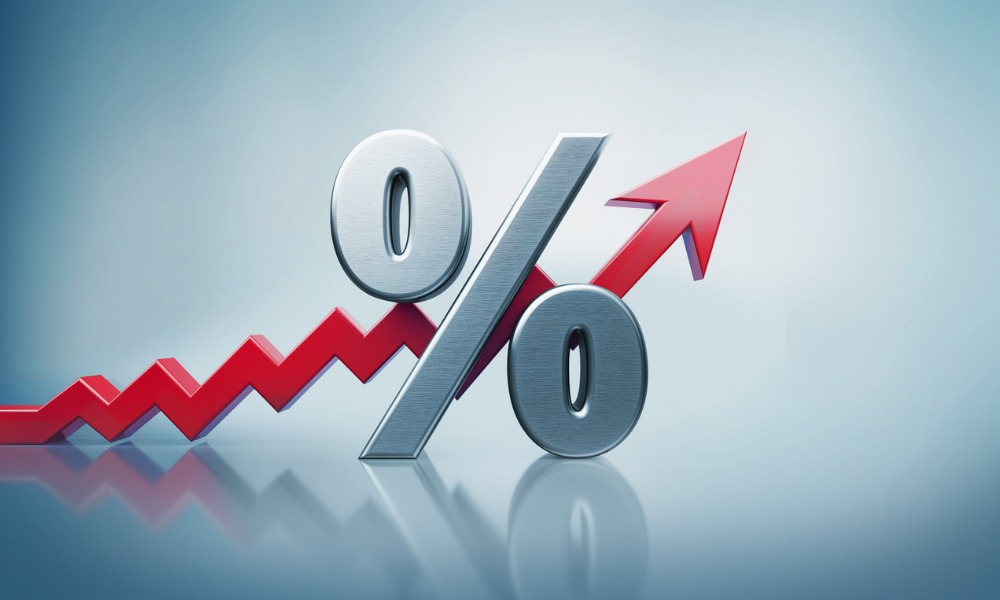The central bank's governor warned Australians to expect further jumps "in the months ahead"

Reserve Bank governor Philip Lowe says borrowers should expect more rate hikes “in the months ahead” as the RBA increases its efforts to curb inflation.
After the RBA announced the latest cash rate hike Tuesday, Lowe said the board was determined to return inflation to the central bank’s 2%-3% target range, The Australian reported.
Lowe said the board would “do what is necessary to achieve that.”
Tuesday’s hike was the ninth straight cash rate rise enacted by the central bank, taking rates to 3.35%. Lowe’s comments led economists to predict that the cash rate would peak at 3.85% by April, rather than 3.6%, The Australian reported.
Inflation is running at a 33-year high of 7.8%, and the RBA board said the issue of getting it under control had become more urgent since it last met in December. The board said that the path to “achieving a soft landing remains a narrow one.”
Lowe acknowledged that rising rates had put a “painful squeeze” on household budgets. He also said he recognised “the full effect of the cumulative increase in interest rates is yet to be felt in mortgage payments.”
About 800,000 households are also due to see their low fixed rates roll over to more expensive variable rates this year, The Australian reported.
Once passed on to borrowers, the latest rate hike will add an additional $114 to the monthly repayment on a $750,000 mortgage, the publication said. Since the central bank began hiking rates in May last year, a borrower with a $750,000 loan has seen their interest bill skyrocket by $1,360 per month, or more than $16,300 per year, according to an analysis by RateCity.
Pressure on government
Soaring inflation and steadily climbing rates put Treasurer Jim Chalmers on the defensive in Parliament Tuesday as the opposition sought to pin the blame on the government.
“Each of these interest rate rises – which began before the election – has put extra pressure on Australians and put extra pressure on the Australian economy as well,” Chalmers said. “I think we understand in this place … that the Reserve Bank makes these decisions independently, and it’s not our job in this place to interfere or to second-guess their decision-making. It’s our job to focus on the broader pressures that are coming at us from around the world and being felt around the kitchen tables of this country.”
Read next: Property prices could drop by 10% in 2023 – report
There is growing fear among ministers that voters will begin to hold the Albanese government responsible for skyrocketing mortgage bills, The Australian reported.
Speaking prior to the RBA’s rate announcement, NDIS Minister Bill Shorten said the central bank might be pushing too hard in its quest to tackle inflation. Shorten told Sky News that the eight consecutive hikes in 2022 were “already massive” and would be “incredibly painful for millions of Australians who are paying their mortgages off.”
“Economic history shows that inflation is a lagging indicator,” Shorten said. “So, in other words, last quarter [consumer price index increase] was big, but some of the signs are that inflation is easing this quarter. So if the Reserve Bank increases mortgage rates in the future to deal with something which is already coming down in the past, it could cause pain.”
Find out what will mortgage rates be in Australia in 2024 with this article.
But Lowe’s statement following the rate hike offered little hope of relief.
“The board expects that further increases in interest rates will be needed over the months ahead to ensure that inflation returns to target, and that this period of high inflation is only temporary,” he said. “High inflation makes life difficult and damages the functioning of the economy. And if high inflation were to become entrenched in people’s expectations, it would be very costly to reduce later.”
Have something to say about this story? Let us know in the comments below.



